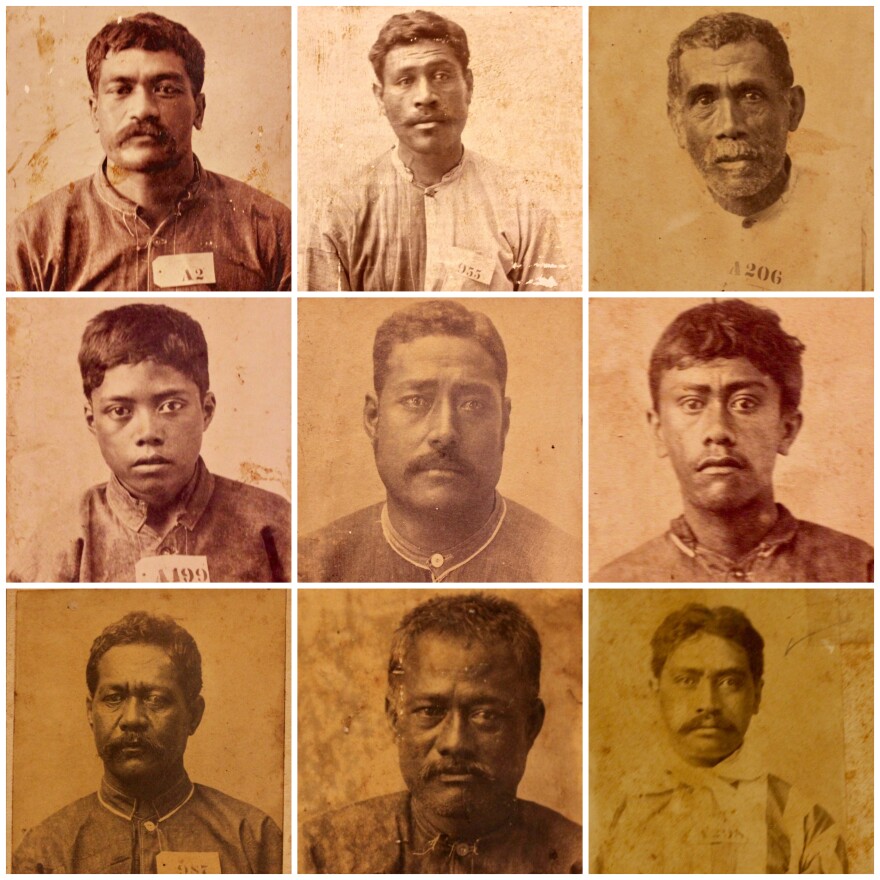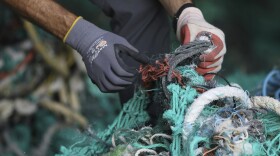Much of the discussion surrounding the protests on Mauna Kea has focused on historical injustices experienced by native Hawaiians. Some events are well-known, like the overthrow of the Hawaiian Kingdom. But others have only recently been rediscovered.
Historian Ron Williams Jr. was sifting through the archives of the Hawai'i Judiciary when he came across a book filled with photographs from the late 1800s and labeled “political prisoners.”

Williams suspected the pictures might be those of individuals loyal to the Hawaiian monarchy who took up arms to restore Queen Lili?uokalani to the throne. Some were but a majority were not.
“These folks were folks who were arrested later on, just simply because they were supporters of the Queen,” said Williams. “And to see those photographs, and to see the looks on their faces and so forth, is really moving.”
About 370 men and women ages 13 to 77 were arrested after what was called the 1895 K?ua K?loko, or Civil War.
The battle between the loyalists and the newly established Republic of Hawai?i lasted a week -- and ended in the arrest of about 100 people who backed Lili?uokalani.

“But then the Republic decided to kind of break the back of that resistance. Hawaiians had been steadfast in their support for the Queen," Williams said. "And so they went out across the islands and basically arrested all of the top Hawaiians – the lawyers, the judges, the writers, and so forth ... folks that had money. And they brought them in and charged them with conspiracy and treason and so forth.”
Most of the political prisoners were sentenced to decades in prison at hard labor, but seven were sentenced to death by hanging.

“At that point, the Republic went to the Queen and offered her a deal basically, and said, 'We?ll commute these sentences into 30-year sentences, if you sign an abdication of the throne,'” said Williams. “They had long looked to get her to give up political power. If she didn?t sign it, these men were going to die.”
She signed under duress.
Williams said the impacts of the war were long-lasting. He shared the story of a Maui judge, William Henry Daniels, who owned Maui Fruit & Taro Co. and a third of Kaho?olawe.

“He had 10 kids and was doing quite well. But he was an example of the type of Hawaiians that the Republic couldn?t allow to have prominence because he gave the people someone to rally around,” said Williams. “And he had a voice in support of the Queen.”
Judge Daniels refused to take an oath of allegiance to the new government. He spent four months in prison.
“While he was in prison, they foreclosed on his mortgages. He ended up losing his businesses. And he went bankrupt,” Williams said. “He got out of prison. He was black-balled so he couldn?t find a job. And then about 18 months after his imprisonment, he took his own life.”
Williams said the judge’s story is just one that he’s uncovered. There are hundreds more.




